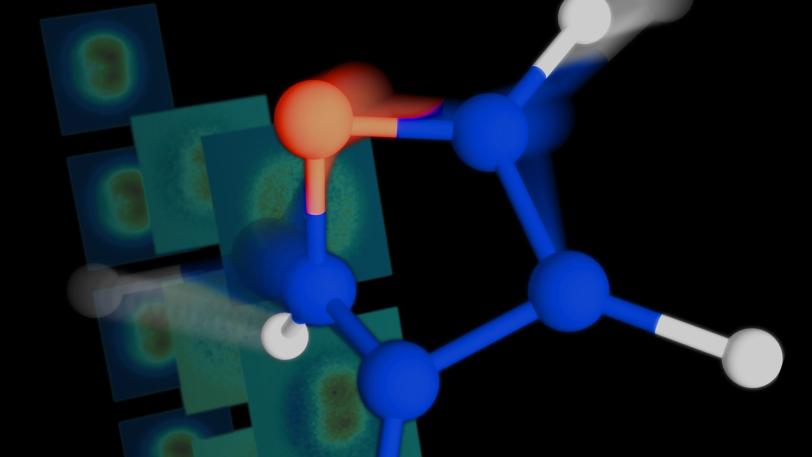From social media to market analysis, people use pattern recognition and machine learning to sift through enormous amounts of data and reach new levels of understanding. Now scientists are using those same tools to track millions of individual molecules as they change shape during chemical reactions. This is a huge challenge — like recording the patterns made by a flock of birds reacting to a gust of wind while at the same time tracking the path of each individual bird. But knowing how small changes in a molecule's shape affect how it reacts with its myriad neighbors is key to understanding how Nature drives some of her most efficient reactions. SLAC’s Ryan Coffee explains how researchers are beginning to use pattern recognition and machine learning to study chemical reactions at the level of atoms and molecules with the Linac Coherent Light Source X-ray laser. His lecture gives a snapshot of this emerging data revolution in chemistry and an outlook on where this approach might lead in years to come.
Quantum CSI: Profiling Molecules with X-rays
Presented by Ryan Coffee
About Ryan Coffee
Ryan Coffee studied philosophy and physics at the University of Arkansas, graduating in 1999. He then did graduate work at the University of Connecticut in ultrafast laser physics, earned a PhD in 2006 and came to SLAC as a research associate in what is now the Stanford PULSE Institute. In 2009 Coffee moved to SLAC's Linac Coherent Light Source as a staff scientist, where he led the first LCLS experiments to use an optical laser beam followed by an X-ray laser beam to trigger and probe changes in a sample of tumbling molecules. More recently Coffee has been collaborating with the SLAC accelerator staff to invent new modes of operation for the X-ray laser, and he uses these new capabilities to follow chemical reactions as they proceed over millionths of a billionth of a second.
Quantum CSI: Profiling Molecules with X-rays
Presented by Ryan Coffee

Quantum CSI: Profiling Molecules with X-rays
11:30 a.m.–12:30 p.m. PST